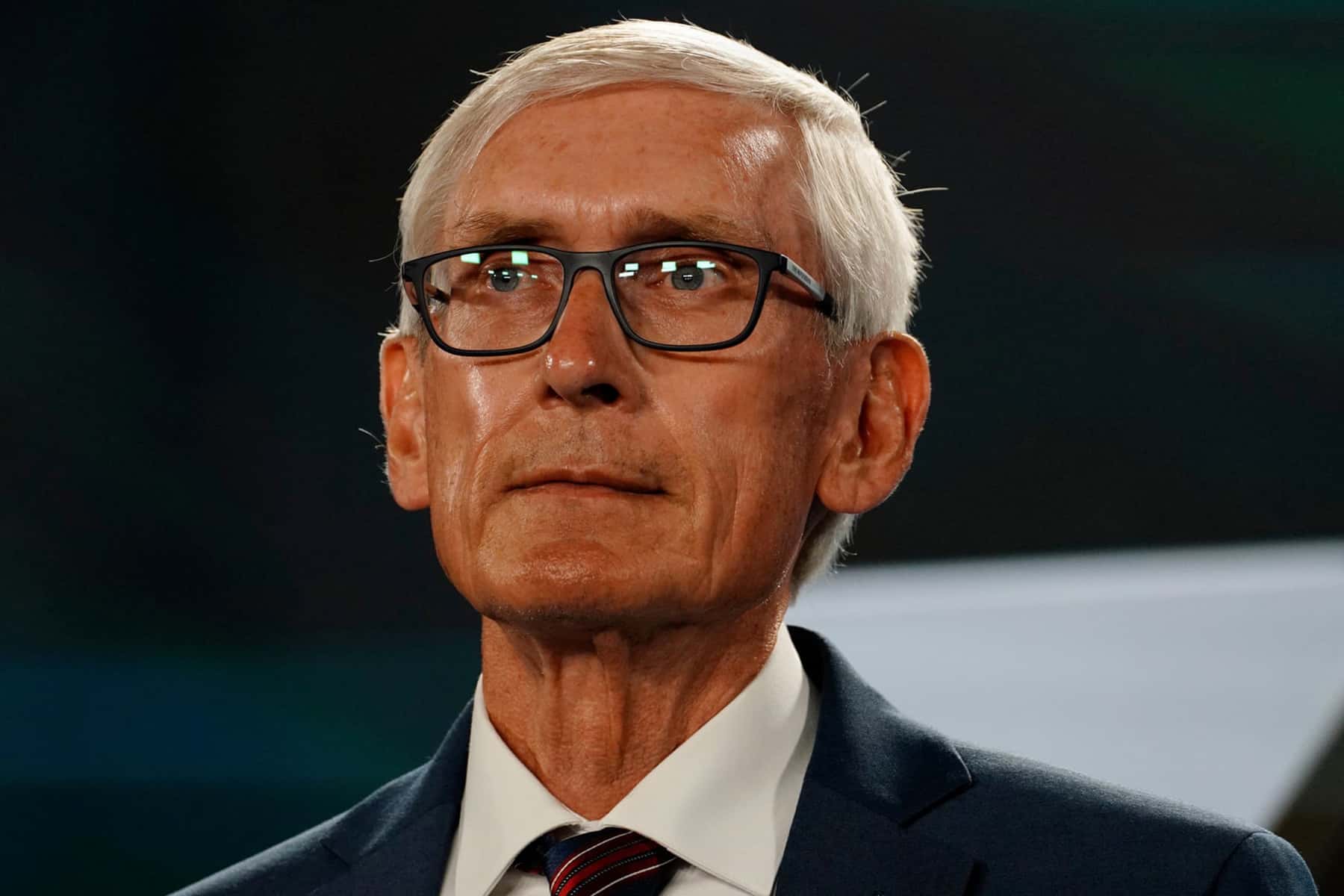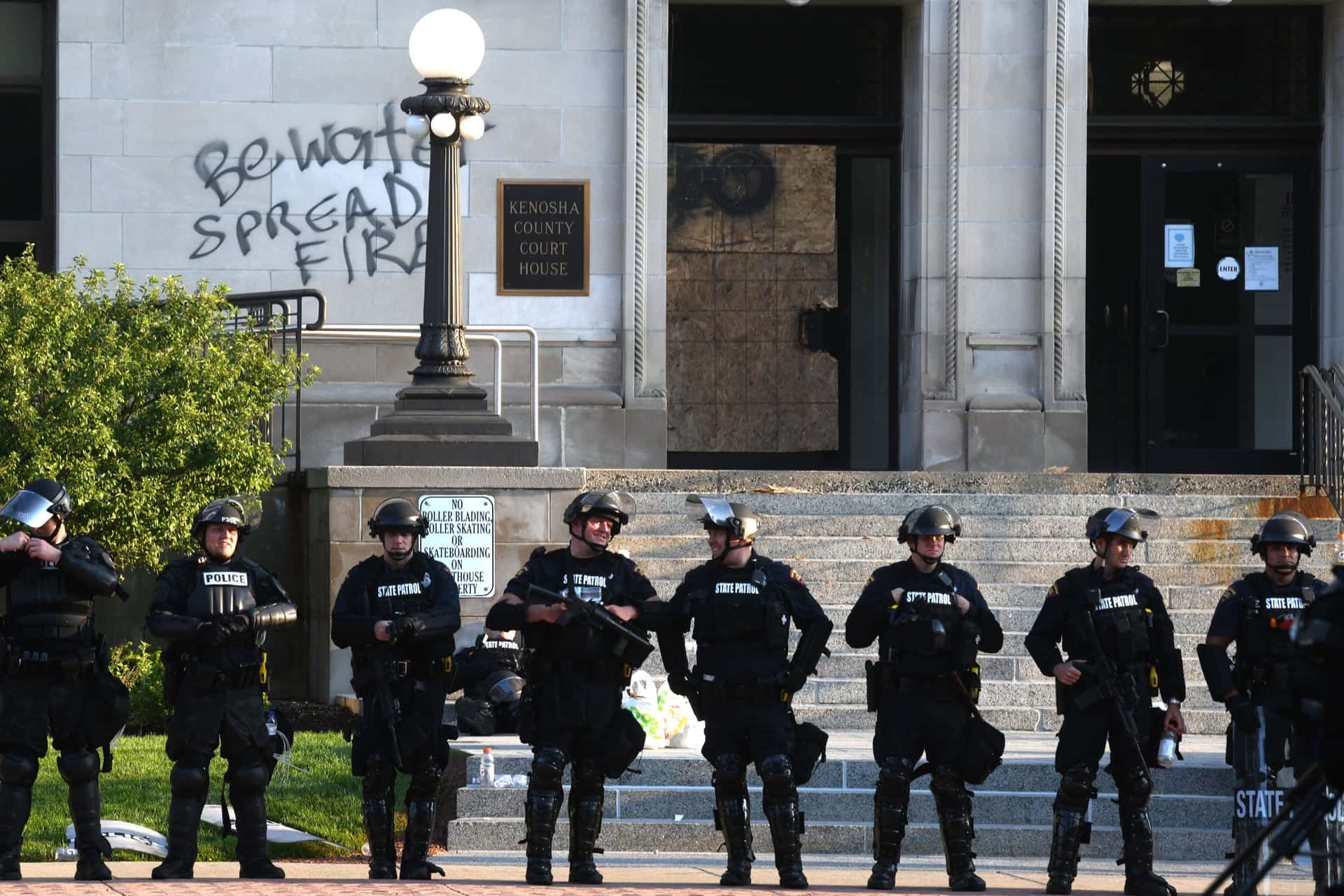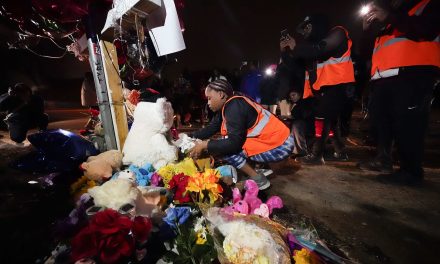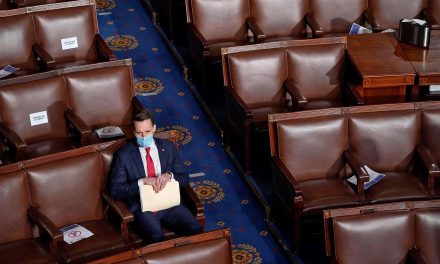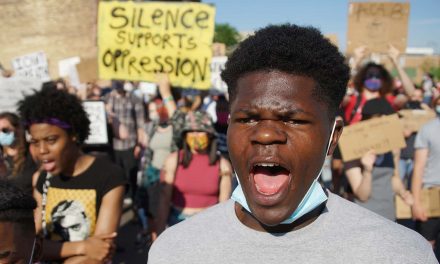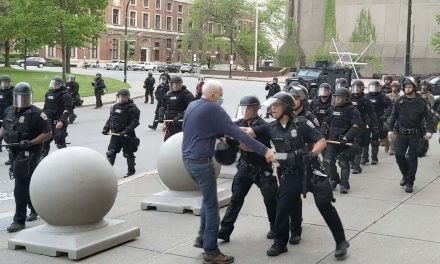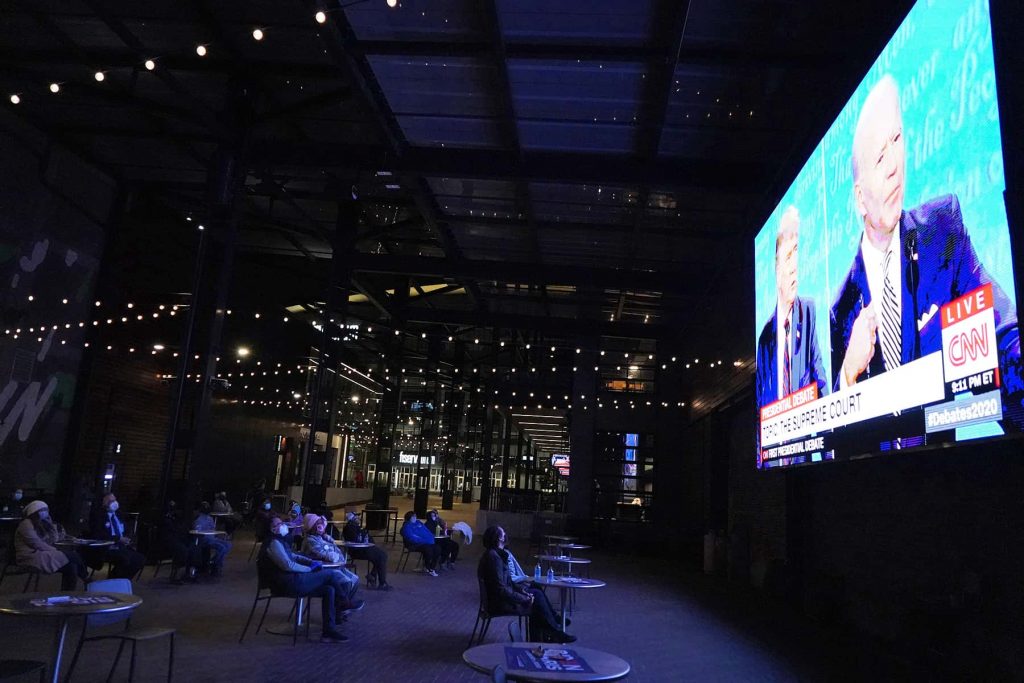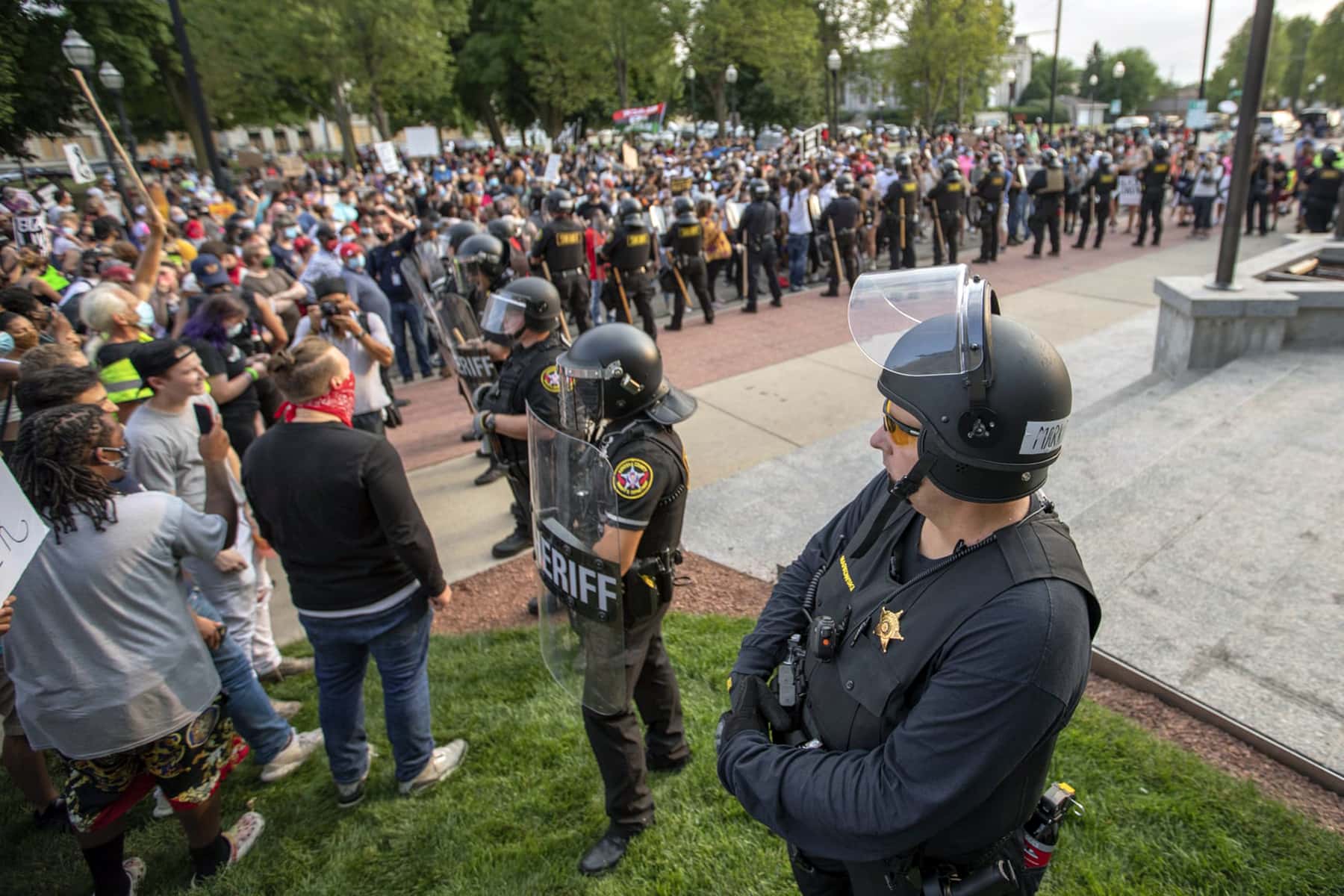
In the aftermath of protests over the shooting of a Black man by police in Kenosha, Governor Tony Evers has promised to move forward with reforms to curb law enforcement misconduct.
Governor Evers has demanded state legislators meet on August 31 in a special session to consider a set of nine police reform bills which were floated more than two months ago. The proposals – which followed the 25 May killing of George Floyd by Minneapolis police – include banning chokeholds and limiting other use-of-force methods.
But criticism over policing in Wisconsin, including specific incidents in Kenosha, long predates the recent shooting of Jacob Blake – which has reportedly left him paralyzed from the waist down.
The public rebukes includes officials’ past failure to institute safeguards. In Kenosha, for example, a police body-camera initiative greenlighted in 2017 may be delayed until 2022 and that long wait has meant that the police who shot Blake were not wearing cameras.
While Kenosha city and police officials unanimously agreed to this body-camera initiative – with the intent that it would foster accountability and gathering evidence – they balked at the cost, according to the Associated Press.
The only publicly available video, which shows an officer shooting Blake in the back several times, was recorded by a neighbor who saw the incident unfold. While Kenosha police do have cameras in their department cars, it’s not known whether there is any vehicle-based footage of the shooting.
The governor declared a state of emergency in Wisconsin on August 25 after largely calm protests were provoked by police and the situation devolved into outbreaks of arson and looting, following the curfew imposed to try to keep order in the city.
Governor Evers said he would double the presence of national guard troops to 250 on Tuesday night, August 25.
Years before Kenosha officials approved – and then delayed – body cameras, the city’s police department also saw criticism for several deaths at the hands of officers.
In 2015, a Kenosha police officer fatally shot 26-year-old Aaron Siler, the Kenosha News reported. A police officer stopped Siler’s car. Siler, who was wanted on a probation violation warrant, ran away. The officer chased him into a garage. Siler “picked up an empty plastic bucket” and the officer fired at him. The officer claimed to have thought he was in danger. Kenosha county’s former district attorney deemed the shooting justified, the newspaper said.
In 2004, a Kenosha police officer fatally shot Michael Bell Jr – who was unarmed and restrained in his driveway by other officers. Police claim that they decided to follow Bell in his car after watching his driving. A toxicology analysis following Bell’s death reportedly revealed that he had consumed alcohol that evening.
Dashboard footage shows a police officer confronting Bell after he left his car. When police attempted to arrest Bell, there was a struggle. The 21-year-old was shot “point blank in the head.” His mother and sister saw police fatally shoot Bell from inside their house. Bell’s death prompted his father, Michael Bell, to successfully advocate for state legislation that requires outside investigation for police killings.
The elder Bell, a retired lieutenant colonel in the U.S. Air Force, has been pushing for a law that would investigate the causes of shootings by police, to prevent them in the future. He described the idea as a “learning model,” approaching police shootings similarly to how the National Transportation Safety Board examines aircraft accidents.
The protests and calls for reform following the shooting of Blake evoked pain and optimism for the Bell family.
“Blake got something that my family never got. He got an outside agency to investigate, instead of a local authority – that changes the curve,” Bell said. “It was bittersweet. It still reminded me that I could never get it done.”
Bell also called for change in how police force incidents are handled after outside agencies investigate them. In Wisconsin, local prosecutors still have the authority in deciding whether to bring a criminal case against police.
“The county district attorney, his voting base [is] the police and law enforcement family,” Bell said. “It needs to be taken out of the hands of the county district attorney.”
Advocates have also criticized Wisconsin police for disproportionately targeting people of color.
Days before Blake was shot by a police officer, the American Civil Liberties Union of Wisconsin released a list of eight persons of color who died “in police interactions” since 2014 – comprising “just a few” of persons killed in these incidents.
Vіctorіа Bеkіеmpіs
Chrіs Jоhn and Mеlіnа Mаrа
Portions originally published on The Guardian as Wisconsin governor promises police reforms after Jacob Blake shooting
Help deliver the independent journalism that the world needs, make a contribution of support to The Guardian.

